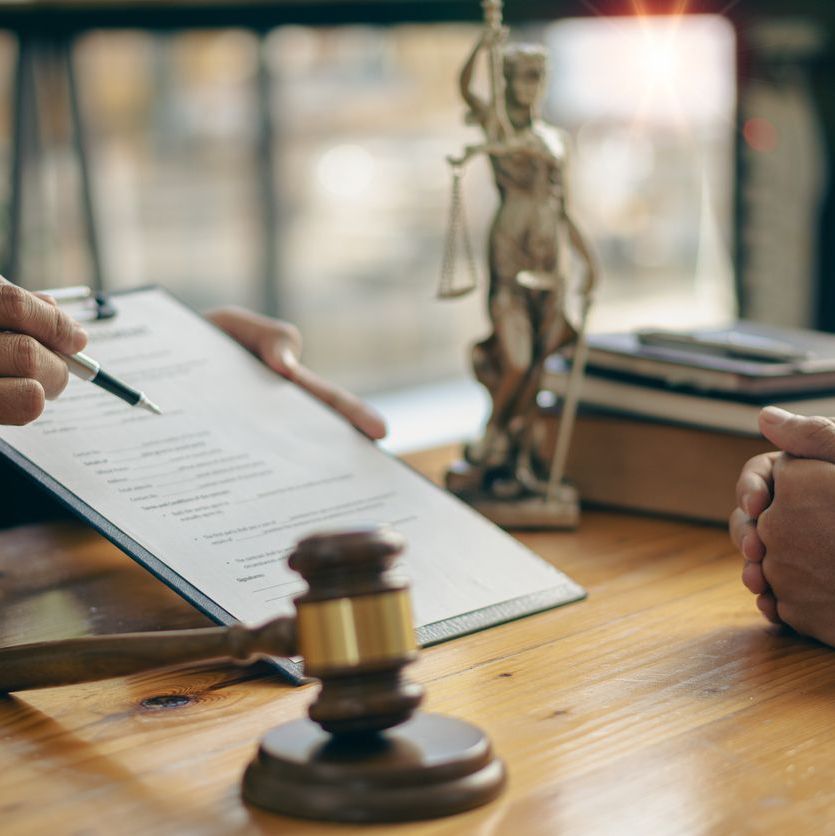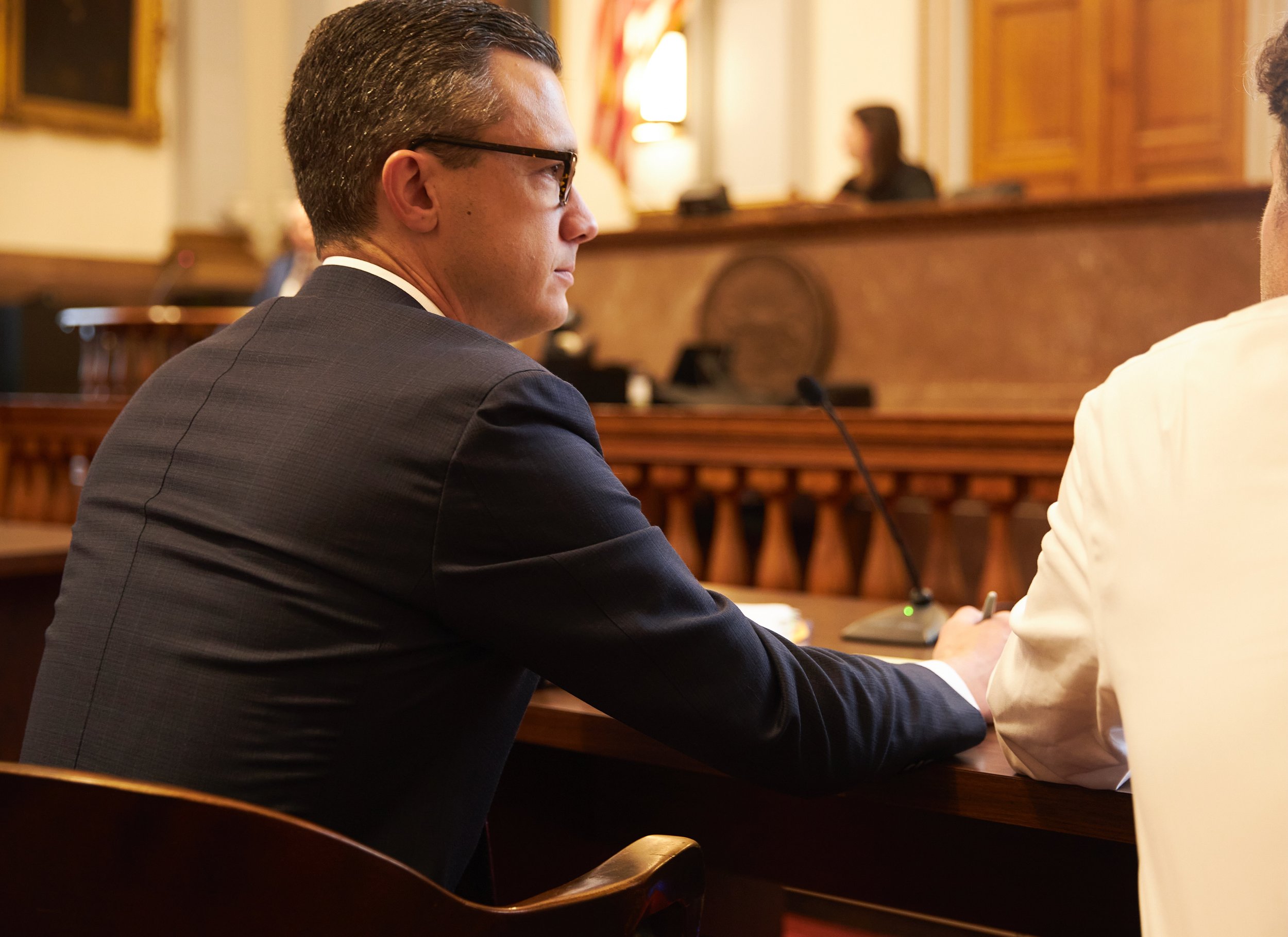The Significance of Habeas Corpus in Legal Protection: Lawyer's Point of view
The Significance of Habeas Corpus in Legal Protection: Lawyer's Point of view
Blog Article
Recognizing the Role of a Post-Conviction Legal Representative in Looking For Justice After a Criminal Sentence
In the facility landscape of post-conviction legal procedures, the duty of a post-conviction attorney is critical in navigating the course to justice after a criminal conviction. Past the boundaries of a trial, these attorneys participate in a diverse technique focused on uncovering new proof, challenging lawful errors, and promoting for their customers' civil liberties. The ins and outs of post-conviction job require a blend of lawful acumen, investigatory abilities, and tactical believing to decipher the intricacies of an instance and pursue avenues that might have been overlooked or underexplored. As the pursuit of justice prolongs beyond the confines of preliminary procedures, the function of a post-conviction legal representative emerges as a sign of hope for those seeking to fix oppressions and recover their civil liberties within the legal system.
Post-Conviction Legal representative's Investigative Job
Post-conviction lawyers engage in thorough investigatory job to discover brand-new proof, procedural mistakes, or misconduct that can possibly result in overturning a sentence. This investigative phase is crucial in the post-conviction procedure as it intends to identify any kind of overlooked information or lawful missteps that might have impacted the result of the preliminary test. Post-conviction lawyers dive into instance documents, witness statements, and legal documentation with a fine-tooth comb, searching for any kind of disparities or irregularities that could be premises for appeal.
Through comprehensive investigation, post-conviction legal representatives aim to drop light on prospective oppressions that might have occurred throughout the initial trial. By looking at every facet of the legal process, post-conviction lawyers work relentlessly to discover any factors that may have influenced the judgment.
Crafting Appeals and Petitions
In the quest of justice after a conviction, knowledgeable attorneys carefully craft charms and applications to present engaging disagreements for the reconsideration of legal choices. Crafting allures and petitions requires a deep understanding of the legal system, attention to information, and calculated thinking. Post-conviction attorneys assess test records, recognize possible errors or offenses of civil liberties, and develop legal arguments to challenge the conviction or sentence.
When crafting an appeal, lawyers concentrate on highlighting legal mistakes that may have impacted the end result of the case. They research situation legislation, statutes, and legal precedents to support their disagreements. Requests, on the various other hand, might involve providing new evidence that was not readily available during the trial or demonstrating changes in the law that call for a review of the conviction.
Additionally, post-conviction lawyers need to follow stringent step-by-step regulations and deadlines when submitting appeals and applications. They must offer their arguments plainly and persuasively to persuade the court to approve alleviation to their clients. Via careful crafting of appeals and applications, post-conviction attorneys strive to safeguard justice for people that have been wrongfully founded guilty or unjustly punished.

Going After Post-Conviction Relief
Post-conviction alleviation includes a variety of legal devices designed to test the validity of a conviction or sentence. Post-conviction lawyers play a vital function in browsing these complex procedures, guaranteeing that all lawful choices are checked out to fix injustices that might have happened during the trial or sentencing stage.
One usual kind of post-conviction relief is submitting a request for post-conviction alleviation, typically based upon cases of ineffective aid of guidance, prosecutorial misbehavior, newly found evidence, or constitutional offenses. These requests call for a complete evaluation of the test record, legal study, and persuasive campaigning for to convince the court to approve alleviation. Experienced post-conviction attorneys possess the skills and expertise essential to identify feasible legal insurance claims, perform examinations, and present engaging arguments to secure relief for their clients. By carefully going after post-conviction alleviation, these lawyers aim to correct losing the unborn babies of visit the website justice and promote the concepts of fairness and due process in the criminal justice system (Lawyer).
Utilizing Forensic Evidence
When challenging a conviction or sentence, the critical application of forensic proof can be a powerful device in post-conviction lawful proceedings. Forensic proof encompasses a vast range of clinical strategies used to explore criminal offenses and establish truths in court. Post-conviction lawyers can take advantage of forensic evidence to test the validity of sentences by providing new scientific findings that were not offered throughout the initial trial.

Participating In Sentence Adjustments
Post-conviction legal representatives might explore the possibility of sentence modifications as a lawful avenue to resolve disproportionate or unfair sentences bied far in criminal instances. Sentence adjustments entail seeking adjustments to the terms of an offender's sentence after a sentence has happened. These adjustments can include minimizing the length of a sentence, altering the sort of penalty enforced, or exploring alternate sentencing choices.
Post-conviction attorneys can seek sentence modifications via different legal devices, such as filing activities for sentence reduction, appealing for compassionate release, or discussing appeal offers for reduced sentences. They should carefully review the situations of the instance, evaluate the lawful premises for looking for an alteration, and present compelling arguments to the court sustaining the need for a modified sentence.
Participating in sentence adjustments needs a detailed understanding of criminal law, sentencing guidelines, and the details procedures associated with seeking post-conviction relief. Post-conviction legal representatives play a vital role in advocating for reasonable and simply results by tough sentences that are unduly severe or do not align with the principles of justice.
Conclusion
In final thought, the role of a post-conviction lawyer is important in seeking justice after a criminal sentence. With investigatory job, crafting allures and requests, going after post-conviction alleviation, utilizing forensic evidence, and participating in sentence adjustments, these lawyers play an important duty in promoting for their customers and making sure that their rights are upheld within the criminal justice system. Their devotion and expertise are necessary in navigating the intricacies of post-conviction process and accomplishing a reasonable result for people encountering criminal sentences.
Report this page